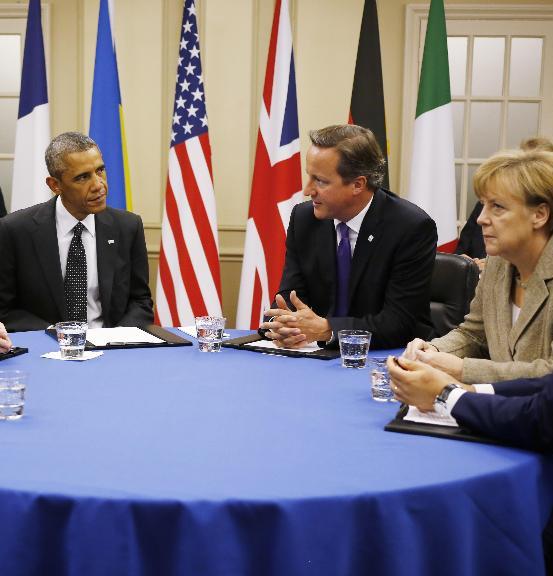As its summit begins, NATO bluntly accuses Russia of attacking Ukraine
NATO’s top official bluntly accused Moscow today of attacking Ukraine as allied leaders began a summit set to support Kiev and buttress defences against a Russia they now see as an adversary for the first time since the Cold War. U.S. President Barack Obama and his 27 allies, meeting at a golf resort in Wales, also discussed how to tackle Islamic State militants (also known as ISIL or ISIS), who have captured swathes of Iraq and Syria, posing a new threat on the alliance’s southeastern flank, and how to stabilise Afghanistan when NATO forces leave at year’s end.
We are faced with a dramatically changed security environment. To the east, Russia is attacking Ukraine.
NATO Secretary General Anders Fogh Rasmussen
Rasmussen’s statement set the tone for a two-day meeting marked by a return to east-west confrontation—25 years after the fall of the Berlin Wall. A NATO military officer said Moscow had “several thousand” combat troops and hundreds of tanks and armoured vehicles in Ukraine, raising the alliance’s previous estimate. The Kremlin denies it has any forces fighting alongside pro-Russian separatists. British Prime Minister David Cameron, the summit’s host, said U.S. and EU sanctions were having an impact on the Russian economy and pressure on Moscow would mount if it did not curtail military action he branded unacceptable.
What Russia needs to understand is if they continue with this approach in Ukraine, this pressure will be ramped up.
Prime Minister David Cameron, speaking to the BBC

World Nato Wales